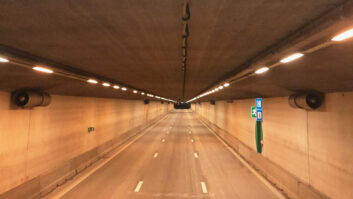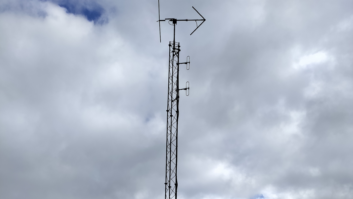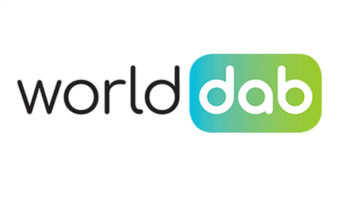A very interesting piece on the immediate future of the DAB+ transition in Sweden has been posted inSvenska Dagbladet, written by Alice Bah Kuhnke, the Swedish Minister for Culture and Democracy. This is a long piece that I edited (a bit) after using Google Translate.�
The conclusion is that the Swedish government will, for the time being at least, halt the transition to DAB+, and will continue to make use of its FM network. The reasons are many and are listed in the text below.�
A DRU reader from Norway forwarded this article to me and also made the following observation: �As Norway and Sweden are neighbors, Sweden�s FM transmitters cover 60 percent of the Norwegian population, so Norwegian listeners that don’t want to switch radios � will be able to use Swedish FM transmissions from 2017.�
Now on to Ms. Kuhnke�s explanation: �The last government appointed in the summer of 2013 a sector coordinator to prepare a draft plan for the transition from analog to digital terrestrial radio.�The assignment was not if, but how digitalization would be implemented, and the starting point that was given was that FM broadcasts would be extinguished in 2022.
�In December of last year, the government received the inquiry report. According to the proposed plan the digitization would commence in 2016 and the FM stations of Swedish Radio and commercial radio companies would shut off in 2022, or at latest 2024.
�In practice, this means�turning off the FM network in accordance with the investigator’s proposal, making ten million radios unusable, with all news ones to be purchased by consumers. Such an extensive transformation of the technology for radio broadcasts, of course, requires strong arguments, supported by a broad processing base. Our consultative bodies, authorities, companies and organizations have therefore played an important role.
�Among the benefits cited are several potential development opportunities in shutting off FM radio and switching to DAB +.�Those include creating scope for broadening radio programming with more applications and new services and it would contribute to improving competition between operators…�
�But despite�those benefits, consultative bodies have brought up several important drawbacks and ambiguities surrounding the digitization:
� One of the most serious objections refers to how the transition would affect the total defense and Sweden’s disaster response, not the least of which is the possibility that at a critical moment there could be a problem disseminating the so-called VMA (Important message to the public). The Armed Forces, the National Defense Radio Establishment and the Swedish Civil Contingencies highlighted precisely the risk that a change affects both the VMA in a negative and costly way.
� The coverage is another problem highlighted by several respondents. Even in the most developed scenario, it is uncertain whether digital radio reaches the whole of Sweden.�The Transport Agency has pointed out ambiguities regarding digital radio coverage of the outer archipelago, some great mountain lakes and at sea off the coast, which can negatively affect, among other things, shipping that dependent on the VMA and weather reports.
� Swedish Radio and the commercial radio sector clearly welcome a transition to digital radio. In the responses from MTG and SBS Discovery Radio there emerges, however, completely different views on how the current authorizations for analog commercial radio should be handled until the extinguishing of the FM network. In the commission’s directives from the previous government, it was clear that a prerequisite to proceed with the shutdown of analog radio was that the commercial industry representatives were unanimous, a requirement which now is not met.
� A central prerequisite for the successful transition to digital radio is that there is a demand among the public.�For example, the National Post and Telecom Agency emphasizes that it is unclear if there is a consumer-driven demand, which is also what the National Audit touches in its recently published review. Without a strong demand for risk benefits that come to nothing when the investment has been completed.
�The outcome of the Referral is not clear. Different parties have given separate assessments of certain key technical aspects. For the government’s assessment, it has been important that there is a clear and broad support among the referral bodies to take a decision on conditions for one of our key media channels. There is not clear and broad support.�
�In light of the referral outcome it is the government’s conclusion therefore to not currently proceed with a transition to DAB +. Such a transition is associated with excessive uncertainty, particularly with regard to radio’s role in the Swedish emergency management.�The government’s view is that our present radio solution, the FM network, is not vitiated by such defects that a move (to DAB+) is justified.
�As with many political decisions, especially in areas where the technology is under constant development, there may be reasons to later reconsider the question of the digitization of terrestrial network for radio broadcasts.�The Government will follow developments in Norway, among others. There, among other things because of a larger renovation need than Sweden has with its FM network, the FM network will be blacked out in favor of DAB + broadcasts in 2017. Not least, the government will consider how Norway manages defense and security aspects of the transition.
�The future of radio�is central to our whole society.�Therefore, we have conducted a dialogue on DAB + and the parliamentary culture committee. The government will now follow the trend for the future of radio listening carefully and will continue to be careful to have broad parliamentary support of media policy.�












